Previous Projects
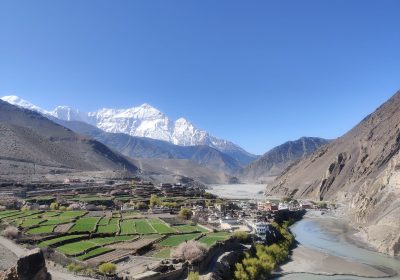
Improved Resilience Of Upland Communities Along The Kaligandaki River
As per the Vulnerability and Risk Assessment Report (VRA), 2021 published by the Ministry of Forest and Environment of the Government of Nepal, Mustang and Myagdi districts lie under climate-vulnerable districts with low adaptive capacity. The key factors that induced the vulnerability are particularly but not limited to climate change,...

Electrifying School Kitchen
Similar to the remote areas of Nepal, the use of firewood and LPG is still prevalent for cooking in Dolakha district. This not only contributes to environmental pollution and deforestation but also increases the dependency on cooking fuel. Moreover, in sensitive areas such as schools, the use of firewood affects...

Assessing the impact of electric cooking intervention in Mahankal Rural Municipality
People, Energy and Environment Development Association (PEEDA) along with partners Kathmandu Alternative Power and Energy Group (KAPEG) and the University of Bristol had implemented Electric Cooking Outreach (ECO) project in Mahankal Rural Municipality in South Lalitpur district that ended back in December 2021, under the Modern Energy Cooking Services (MECS)...
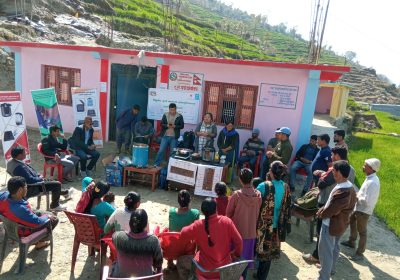
Orientation, Demonstration and Demand Assessment of Electric Cooking at Selected MHPs of Bajura District
The project is intended to conduct 40 numbers of demonstrations of electric cooking events in 7 MHP projects in Bajura distrct. The project plans to disseminate knowledge on electric cooking technologies: electric pressure cookers (EPCs), induction stoves, and electric kettles. The aim of the project is to show that electric...
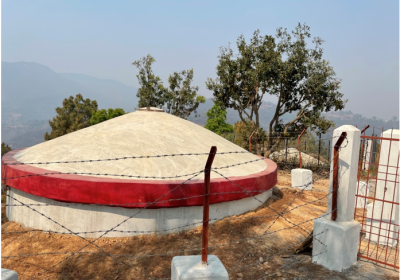
Ribdikot Drinking Water Project
The project is aimed to provide drinking water facilities to rural households in Ribdikot Rural Municipality, Palpa via the installation of water pump, civil works for necessary transmission pipeline and anchoring and storage tank conversion. The project is supported by KRIA Foundation, Norway.

Understanding of the energy implications at the household level of cooking entirely with electricity
The Government of Nepal has projected the rise of the electricity in the national grid from 1250 MW (2018/19) to 5820 MW by 2024, an increase of 4.6 folds. Hence transitioning to electric cooking has not only environmental, social, economic benefits but can also improve national energy security. One of...

ECO Follow Up Study
People, Energy and Environment Development Association (PEEDA) along with partners Kathmandu Alternative Power and Energy Group (KAPEG) and University of Bristol had implemented Electric Cooking Outreach (ECO) project in Solukhumbhu and South Lalitpur districts that ended back in December 2021. The research project was conducted under the financial support from...
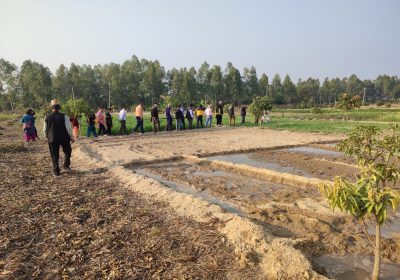
Climate Resilient Communities and Sustainable Livelihood Initiatives for Pro-Poor of Dolakha District of Nepal, continuation
The project aims to enhance adaptive capabilities of targeted communities viz. women and children, marginalized commuities, Dalits and ethnic minorities against adverse effects of climate change. Moreover, it also aims to enhance agri-entrepreneurship skills, climate -resilient agricultural techniques and innovation in irrigation methodologies among targeted communities. The project is currently...
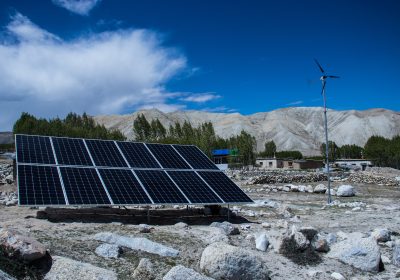
Improving access to energy through installation of 5 kW solar-wind hybrid system and proper energy planning in Lo Manthang, Mustang, Nepal
PEEDA in collaboration with Energy, Environment, Research and Development Center (EERDC) implemented this project, funded by Siemenpuu Foundation, Finland. The project aimed to electrify 45 households in Kimling village, and provide operation and maintenance training to the local technicians. Besides that, the project also focused on developing a Municipal Energy...
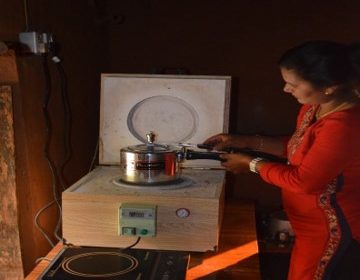
Understanding the Manufacturing and Upscaling Potential of E-Cooking Stoves in Nepal
The main objective of this research is to establish a pathway that facilitates production of e-cookers in Nepal. The project is funded by WWF Nepal. The specific objectives are: • Identify and examine successful cases of production of e-cookers devices globally and locally • Identify key potential stakeholders in e-cooking...
